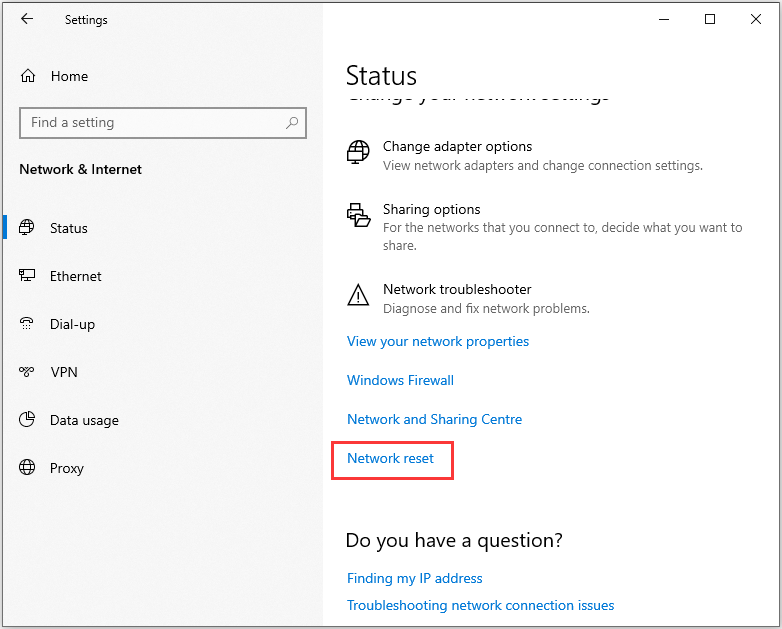
If so, this will help me find systems that I may have that have this state so I can investigate further. #Does this relevance detect this case on systems that you know to have this state? (local ports of it, local addresses of it, (if udp of it then "UDP" else "TCP:" & (tcp state of it as string)) ) of sockets whose(exists processes whose(name of it = "BESClient.exe") of it) of networks
#FIX UDP LOOPBACK WINDOWS 10 WINDOWS#
They also didn’t see other instances of the client opening a UDP socket, which makes me wonder more about a WinAPI call being responsible. Resolution 1: Use the netsh command Resolution 2: Use the Windows Firewall with Advanced Security add-in Resolution 3: Disable Network List Service Status This article provides resolutions for the issue where UDP communication is blocked by the Windows Firewall rule in WSFC when the network connection is interrupted and then restored. At least for me, I dont see a loopback device in my device manager. With the Command Prompt open, type: netsh firewall show state.

I asked the platform team if this could somehow relate to the BigFix ClientUI and/or SSA app, but that doesn’t seem to be the case either based upon how that works. Right-click on CMD and Run as Administrator. ( Side Note: I recommend this setting for all VMs & Laptops ) This affect greatly the UDP performance for one.
#FIX UDP LOOPBACK WINDOWS 10 WINDOWS 10#
If so, then I would try >this< client setting to see if it has an effect because it will cause the client eval loop to stop for 10 minutes at a time. We are experiencing Network troubles on the Dell OptiPlex 7060 Computer with Windows 10 Version 18. This could be an unintended consequence of the BigFix client calling a windows API, but if so, I would expect it’s effect to be temporary and only happen when the client is evaluating the relevance that would cause that API to be called. To do this, follow these steps: Click Start, type wf.msc in the Search programs and files box, and then click wf.msc under Programs. I also wonder if Wake-On-Lan forwarding would cause this.

This might be explainable if the system in question is a BigFix relay.

Does it seem to be there all the time on these systems? import asyncio import socket async def server (): with socket.socket (socket.AFINET, socket.SOCKDGRAM) as sock: tblocking (False) sock.bind ( ('', 4567)) data await loop.sockrecv (sock, 512) print ('Received', data) async def main (): localip socket.gethostbyname (socket.gethostname ()) print ('Local IP', localip) Outp.


 0 kommentar(er)
0 kommentar(er)
